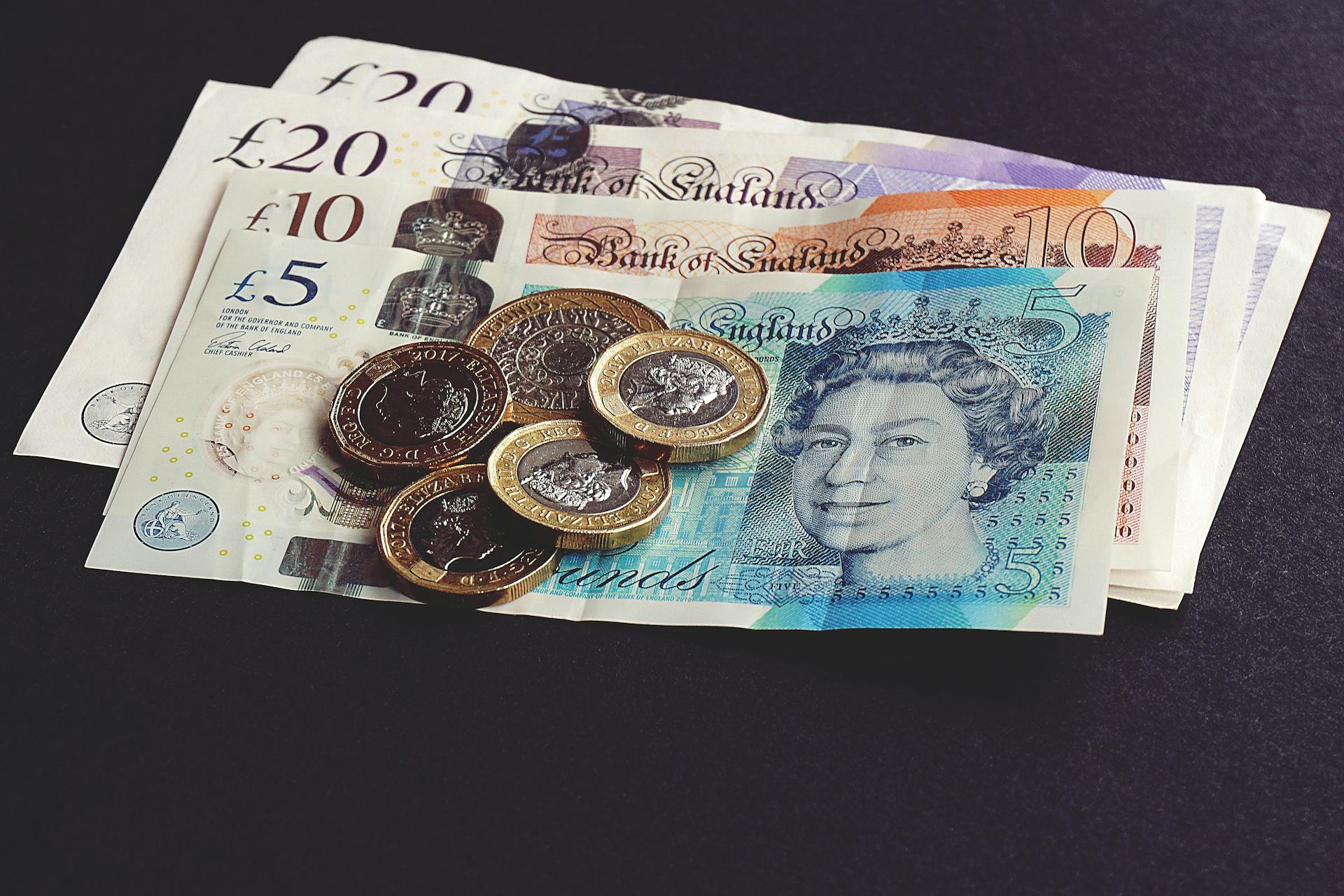
The Consumer Financial Protection Bureau (CFPB) plays a crucial role in protecting consumers from unfair credit card practices.
The CFPB regulates credit card companies to ensure they provide clear and transparent information to consumers.
Before applying for a credit card, it's essential to review the terms and conditions, including the interest rate, fees, and payment due date.
The CFPB requires credit card companies to disclose this information in a clear and concise manner, often in the form of a Schumer box.
Expand your knowledge: Discover It Card Information
CFPB Actions
The CFPB has taken action against credit card issuers for illegal practices related to credit card rewards programs. American Express and Bank of America are two examples of issuers that have faced action from the CFPB.
The CFPB will continue to monitor credit card rewards programs and take necessary action on these issues as appropriate. This means that credit card issuers should be on notice that the CFPB is watching and will take action if they engage in unfair or deceptive practices.
Consider reading: Credit One Bank Lawsuit Settlement Payout per Person
Companies may be violating federal law if they devalue earned rewards, hide the conditions for earning or keeping rewards, or fail to deliver promised benefits. These practices can result in consumers losing points or being unable to redeem rewards they have earned.
Here are some examples of unfair or deceptive practices that the CFPB has identified:
- Devaluing earned rewards: Companies may promise a certain number of points or miles, but then change the rules so that consumers earn fewer rewards than expected.
- Hidden conditions: Companies may bury fine print disclaimers or vague terms in contracts that conflict with their advertising and promotional language.
- Failed promises: Companies may promise benefits that they are unable to deliver, resulting in consumers losing points or being unable to redeem rewards.
Consumer Concerns
One out of every four credit card accounts is a private label retail card, with over 160 million open accounts in 2024.
Consumers have reported experiencing aggressive sales tactics at the point of sale when applying for retail credit cards.
More than 80 percent of retail cards are issued by four large banks, making them a significant part of the consumer credit card market.
Consumers have also reported frustration with paper statement fees and late fees associated with retail credit cards.
Private label store cards make up a disproportionate amount of late fee volume compared to their share of account volume.
The average APR for new accounts on private label cards for the top retailers in December 2024 was 32.66 percent.
Consumers have also reported experiencing difficulties in redeeming promotions and rewards associated with retail credit cards.
If this caught your attention, see: Consumers Credit Union Mortgage Rates
Credit Card Options
The Consumer Financial Protection Bureau (CFPB) has made it easier for consumers to explore credit card options with its new tool, Explore Credit Cards. This tool provides unbiased, comprehensive data for more than 500 cards.
You can use this tool to compare interest rates, fees, and rewards offerings based on your credit score range. The CFPB is also inviting more companies to contribute to the data set to make sure that the information can cut through the marketing on pay-to-play platforms.
The CFPB previously found that the 25 largest credit card issuers charged interest rates 8 to 10 percentage points higher than smaller banks and credit unions. This can cost the average cardholder $400 to $500 per year.
See what others are reading: Can I Lease a Car with 500 Credit Score
Lower Interest Rates Finder
The CFPB's new tool, Explore Credit Cards, helps people make apples-to-apples comparisons about credit card options using open data.
By using this tool, consumers can easily compare interest rates before applying for a credit card, which can save them hundreds of dollars per year.
Discover more: Regulation Z Truth in Lending Act
The tool provides unbiased, comprehensive data for over 500 credit cards, giving consumers a higher degree of certainty when searching for the best card for their situation.
The average cardholder can save $400 to $500 per year by choosing a credit card with a lower interest rate, which is a significant difference from the 8 to 10 percentage points higher rates charged by the 25 largest credit card issuers.
Smaller banks and credit unions offer better interest rates, with the 25 largest issuers charging rates 8 to 10 percentage points higher than these smaller institutions.
The CFPB invites smaller issuers to contribute their data to the tool, giving them a chance to promote their credit products in a market typically dominated by pay-for-play platforms.
Curious to learn more? Check out: How to Get Higher Limit Credit Cards
Credit Card Agreement Explanations
Rewards programs can be complex, so it's essential to understand the terms and conditions. Credit card issuers often have different rewards programs for various channels, such as online applications, phone applications, and in-store promotions.
Broaden your view: Hardship Programs for Credit Cards
Consumers have complained about discrepancies between rewards advertised in marketing materials and those in the credit card rewards terms and conditions. This is often referred to as a "bait-and-switch scam."
Issuers can change reward program terms at any time, often without notice. This can result in consumers receiving lesser value when redeeming rewards than initially promised.
Customer service and technology troubles can also impede consumers' ability to redeem rewards or resolve issues. Some consumers have complained about being redirected repeatedly between the issuing bank and merchant partner.
Redemption portals can also go down for maintenance, leaving consumers unable to redeem their points. In some cases, this can last for weeks or even months.
It's essential to read and understand the credit card agreement before applying for a card. This will help you avoid any surprises down the line.
On a similar theme: Terms of Payment L/c
CFPB Focuses on Credit Programs
The CFPB is cracking down on credit card rewards programs, and it's about time. More than 90 percent of general-purpose credit card spending occurred on rewards cards since 2019.
Companies are using these programs to encourage consumers to apply for and use specific cards, but it's not all sunshine and rainbows. Consumers have reported to the CFPB that rewards can be difficult to redeem or are sometimes devalued by policy changes by partners.
The CFPB has identified three main issues with credit card rewards programs. Here are the details:
- Devaluing earned rewards: Companies may promise a certain value of rewards, but later reduce their value, which can be considered a bait-and-switch scheme.
- Hiding conditions for earning or keeping rewards: Companies may bury fine print disclaimers or vague terms in contracts that conflict with promotional language, which can be unfair or deceptive.
- Failing to deliver promised benefits: Companies may not deliver on their promises, such as allowing consumers to redeem their rewards, which can be considered an unfair or deceptive practice.
The CFPB has already taken action against companies like American Express and Bank of America for these practices. They will continue to monitor credit card rewards programs and take necessary action where appropriate.
Additional reading: Credit Cards Class Action
Key Information
Credit card rewards programs have become a major focus in the credit card industry, with many consumers considering them when choosing a card to apply for or use at a point of sale.
The Consumer Financial Protection Bureau (CFPB) has identified four recurring issues with credit card rewards programs. These issues include discrepancies between rewards advertised in marketing materials and those actually offered in the credit card's terms and conditions.
Recommended read: Patelco Issues
Consumers have complained about being misled by credit card issuers who promote rewards that are not actually available. This is known as a "bait-and-switch scam." The CFPB has taken action against issuers who engage in this type of behavior.
Credit card issuers can change the terms of their rewards programs at any time, often without notice. This can result in consumers receiving less value from their rewards than they initially expected.
Consumers have also complained about difficulties in redeeming rewards due to customer service issues and technology problems. These issues can include being redirected between the issuer and merchant partner, or experiencing technical issues with redemption portals.
Here are some key takeaways from the CFPB's report on credit card rewards programs:
- Issuers must provide a precise definition of "gaming" and/or "churning" in order to seize rewards balances of fraudsters and close their accounts.
- Issuers are responsible for the decisions of their co-brand partners that have a negative impact on their rewards programs.
- Co-brand partnerships present special challenges to issuers who market and share in the financial benefits of the partner's program but lack control over or insight into management of that program.
The CFPB has launched Explore Credit Cards, a tool that helps people make apples-to-apples comparisons about options in the credit card market. This tool provides unbiased, comprehensive data for more than 500 cards, and the data is available to everyone.
Frequently Asked Questions
Does filing a complaint with CFPB do anything?
Filing a complaint with CFPB helps us identify potential issues and may lead to enforcement actions to protect consumers. By sharing complaints with other agencies, we can also monitor the market and improve supervision activities.
Which credit bureau is used for credit cards?
Credit card issuers often use one of three major credit bureaus: Experian, TransUnion, or Equifax, to evaluate your creditworthiness. The specific bureau used may vary depending on the lender and their credit evaluation process.
Sources
- https://www.consumerfinance.gov/about-us/newsroom/cfpb-takes-action-on-bait-and-switch-credit-card-rewards-tactics/
- https://www.consumerfinancialserviceslawmonitor.com/2024/05/cfpb-fixes-spotlight-on-credit-card-rewards-programs/
- https://www.cooley.com/news/insight/2024/2024-05-16-cfpb-hints-at-future-regulatory-action-targeting-credit-card-rewards-programs
- https://www.steptoe.com/en/news-publications/lessons-from-the-cfpb-credit-card-rewards-report.html
- https://www.consumerfinance.gov/data-research/credit-card-data/know-you-owe-credit-cards/
Featured Images: pexels.com


